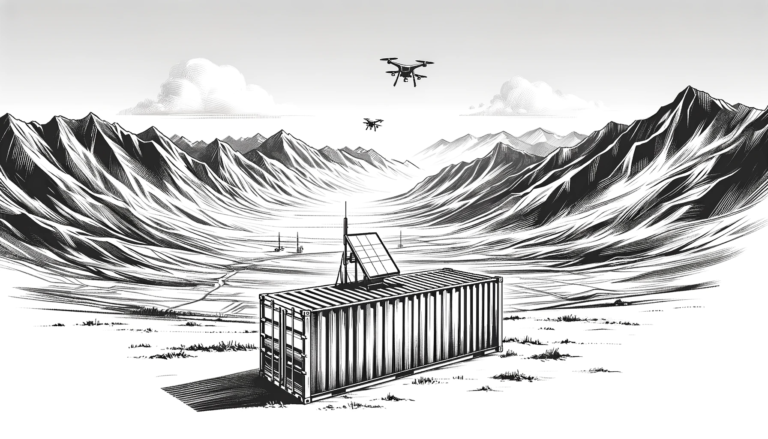The year 2023 marked a reflective moment in our digital evolution, as 33% of the world’s population, or 2.6 billion people, remained disconnected from the internet, thereby missing out on the myriad economic and social opportunities brought forth by digital technologies. The clear correlation between internet access and a nation’s developmental level remained evident. For example, in high-income countries, an impressive 93% of the population reaped the benefits of internet connectivity, in stark contrast to just 27% in low-income countries. This significant 66-percentage point gap highlighted the extensive digital divide separating more affluent nations from their less prosperous counterparts.
The Origin of Data Disparity
Addressing the digital and AI divide demands a far-reaching approach that goes well beyond simply providing smartphones and access to 5G/4G or satellite networks. Across various parts of the world, there is a noticeable gap in the essential infrastructure needed for data collection and processing by sensors and devices, which are critical for enhancing everyday life. The lack of capacity for data aggregation, processing, and analysis frequently relegates the utility of connectivity to rudimentary functions such as social media interaction, video streaming, or music listening. Unfortunately, this shortfall in harnessing data from socio-economic activities leads to significant disparities in datasets. These disparities span across different global regions, contrasting urban and rural areas, and varying between developed and remote user groups. Such a pronounced imbalance can result in AI models that are less effective or relevant for smaller or poorly represented online communities and industries.
Disparities in Cloud-based Computing
The increasing proliferation of devices, IoT sensors, and high-bandwidth data sources is generating massive data streams, challenging the current reliance on cloud-based processing. This reliance is becoming increasingly untenable, both in terms of the physical logistics of transferring large data volumes and the associated financial costs. The secure transmission of data from sensors and devices in remote, rural, and underserved regions to distant cloud servers presents significant challenges in terms of effective data stewardship and privacy. Compounding this issue is the lack of comprehensive regulatory frameworks in many countries to protect data that is generated and transmitted to the cloud by both individuals and industries. A more pragmatic solution lies in localizing data processing: processing data at its source and then aggregating it into meaningful, actionable information. This approach not only secures data during transit but also ensures its safety when stored, addressing key concerns in our evolving digital landscape.
Industry Disparities in AI Adoption
Our concerns further include the growing disparity in AI readiness and expertise across various industries. Those enterprises that are proficient and well-equipped in AI technologies, both in terms of their development and application, are on a trajectory for rapid advancement. In contrast, industries lacking the necessary skills and resources face the daunting prospect of stagnation. The increasing prevalence of assistive agents and AI copilots is a notable trend across sectors like e-commerce, retail, automotive, banking, healthcare, hospitality, and entertainment. These AI-enabled tools have significantly enhanced performance in areas such as sales, marketing, customer service, content creation, and software development. Yet, many industries, including oil and gas, energy, mining, manufacturing, infrastructure, railroads, logistics, transportation, defense, construction, pharmaceuticals, and agriculture, are positioned to gain immensely from AI copilots and other forms of generative and multimodal AI, with the potential to boost productivity and improve human-machine interaction.
Despite having access to AI platforms and services in the cloud, these industries often lack the comprehensive understanding necessary to use these technologies economically, effectively, and safely. This gap can lead to resource underutilization, computational inefficiencies, and challenges in fully leveraging AI’s capabilities. For instance, a superficial grasp of how to utilize pre-trained language models, fine-tune them, and augment their outputs using proprietary documents can result in inaccurate responses, unintended disclosure of sensitive information, poor integration into business processes, and inflated cloud computing expenses. Interestingly, this variation in AI adoption reflects broader disparities observed across regions, countries, and entire economies.
The AI Creation Opportunity
A joint report from the World Bank, UNICEF, and UNESCO has disclosed a startling consequence of the pandemic: students who lost a year or more of education, in part due to inadequate internet access and remote learning opportunities, now face the risk of forfeiting an estimated $17 trillion in lifetime earnings. This observation prompts us to consider the transformative potential of providing these young individuals with access to advanced AI-based learning tools, complemented by quality primary and secondary education. The digital and AI economy only exists for those who are connected within its network. Overcoming the hurdles of connectivity, computing access for data processing, and AI adoption is just the beginning of addressing the broader AI divide.
Our aspiration extends beyond shaping industries, regions, and countries into proficient users of AI technologies. We envision them as informed and skilled creators in this domain. This shift from merely consuming AI to actively creating with it enables individuals to become educated participants in the age of AI. They will have the capability to build, modify, and effectively utilize AI tools, all the while navigating the ethical complexities and making responsible decisions in their AI endeavors. Such proficiency in ethically manipulating and innovating with AI empowers individuals to transition from passive consumers to proactive contributors within the AI ecosystem. This evolution is pivotal in fostering innovation and cultivating a more profound comprehension of AI technologies, which are becoming increasingly integral to our daily lives.
Towards a Connected and AI-Empowered Future
The digital and AI divide presents not merely a challenge but a profound responsibility, demanding a comprehensive and strategic response. It’s crucial to extend our efforts beyond providing internet connectivity, focusing on establishing robust infrastructure for advanced data processing, advocating for diversity in data representation, and fostering a widespread, industry-specific understanding and application of AI. This journey is about more than technology; it is about equitably empowering communities and industries worldwide to not only utilize AI tools but to create them, ethically and conscientiously. Such empowerment is the cornerstone of a truly inclusive AI age.
Reflecting on this imperative, the words of Michael Jordan, a professor at the University of California, Berkeley, resonate deeply: “While the science-fiction discussions about AI and super intelligence are fun, they are a distraction. There’s not been enough focus on the real problem, which is building planetary-scale machine learning–based systems that actually work, deliver value to humans, and do not amplify inequities.”
At Armada, our commitment transcends mere technological advancement. Our vision is to instill value in every industry, to diligently counter and bridge the divides that exist and may arise. We are not just building AI systems; we are shaping a future where AI is a beacon of inclusivity, a tool that unlocks potential and champions equality, ensuring that the benefits of AI are a universal reality, accessible to all, irrespective of geography, economy, or industry. This is not just a mission; it is a mandate for a future where AI is an equalizer, a force for good, harmonizing the human experience across every edge and corner of our planet.





